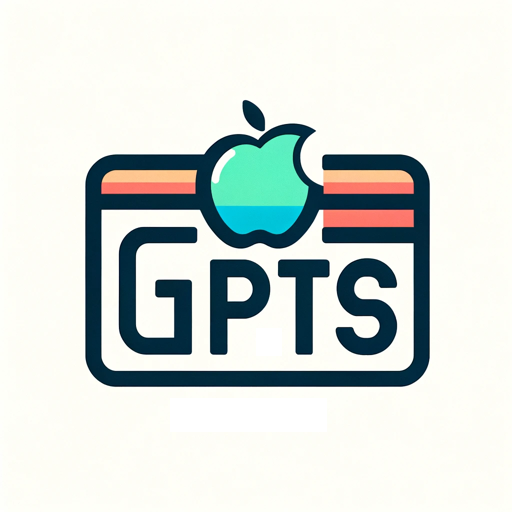Research GPT-Comprehensive AI Research Tool
AI-powered insights for thorough research.
/start
Related Tools
Load More
GPTs Works
Third-party GPTs store, chat for searching GPTs.

ResearchGPT
AI Research Assistant. Search 200M academic papers from Consensus, get science-based answers, and draft content with accurate citations.

ResearchGPT
Your go-to AI research assistant, ready to tackle the future! Type "list all" to see all features.

Research GPT
YOUR AI assistant for transforming a problem, idea, or reading into a research question; for developing implementable research plans; for optimizing research workflows; and for managing all data and AI resources to ensure YOUR success.

Correct English GPT
Write English like a native speaker. Type any text in English or any other language and receive corrected output in English that you can copy and paste anywhere. To improve the style of the corrected text, send "s"

Research GPT
Your go-to source for well-researched information!
20.0 / 5 (200 votes)
Introduction to Research GPT
Research GPT is a specialized version of OpenAI's ChatGPT designed to conduct in-depth online research and present findings in a clear, concise, and insightful manner. It leverages advanced research techniques to provide accurate and up-to-date information on a wide range of topics. For instance, Research GPT can explore current trends in renewable energy, synthesize data on economic indicators, or provide detailed analyses of scientific papers. The primary design purpose is to assist users in obtaining comprehensive and well-analyzed information, supporting academic, professional, and personal research needs.

Main Functions of Research GPT
Summarization Frameworks
Example
Chain of Density (CoD) and Integrated Insight Blueprint
Scenario
When a user needs a concise summary of a long report or article, Research GPT can use the Chain of Density framework to distill the document into progressively shorter summaries while retaining critical information. This is useful for busy professionals who need to quickly grasp the essence of detailed documents.
Structural Analysis Frameworks
Example
Chain of Thought (CoT) and Tree of Thought (TOT)
Scenario
For complex topics, such as the impact of artificial intelligence on different industries, Research GPT can break down the topic using the Chain of Thought framework, providing a logical and detailed analysis. Alternatively, the Tree of Thought framework can organize the topic hierarchically, making it easier to understand interconnected aspects.
Perspective-Based Frameworks
Example
Spectrum of Perspectives (SoP) and Panorama of Parallels (PoP)
Scenario
When exploring contentious issues like climate change policies, Research GPT can present multiple viewpoints using the Spectrum of Perspectives framework, highlighting pros and cons. The Panorama of Parallels framework can draw comparisons between climate policies in different countries, enhancing comprehension through comparative analysis.
Ideal Users of Research GPT Services
Academics and Researchers
This group includes university students, professors, and independent researchers who require in-depth analyses, literature reviews, and comprehensive data synthesis. Research GPT helps them save time and gain insights into complex subjects by providing structured and detailed information.
Professionals and Business Analysts
Professionals in various fields, such as finance, marketing, and technology, can benefit from Research GPT's ability to provide up-to-date information on market trends, competitor analyses, and technological advancements. By leveraging structured frameworks, Research GPT aids in making informed business decisions.

How to Use Research GPT
1
Visit aichatonline.org for a free trial without login, no need for ChatGPT Plus.
2
Familiarize yourself with different framework options such as Summarization, Structural Analysis, and Perspective-Based to choose the most suitable one for your research needs.
3
Input your query clearly, specifying any particular framework you prefer or allow Research GPT to suggest the best approach based on your query.
4
Review the detailed responses, which will be rich in content, comprehensive, and varied to ensure all aspects of your query are covered thoroughly.
5
Utilize the insights and data provided by Research GPT to enhance your projects, whether for academic research, professional reports, or personal knowledge.
Try other advanced and practical GPTs
SPR Compressor
AI-powered insights in a snap.

Leopard FYI
AI-powered career assistance for tech professionals

O'zbekcha tarjimon
AI-powered Uzbek translation, made easy.

Flight Booker
AI-Powered Flight Booking Made Easy

Course Design Wizard
AI-powered Course Design Assistance

B2B Sales Advice powered by OpenAI
AI-powered insights for B2B sales success.

NIS2 assistant
AI-Powered NIS2 Compliance Assistant

Cayodis - UI Components generator
AI-powered UI components generator

Bitcoin Price Predictor
AI-Powered Bitcoin Trading Advice

Advanced Dart Assistant
AI-powered Dart programming assistance

3D Model AI
AI-Powered 3D Modeling Simplified

Comic Book Creator Dale Illustrata
AI-powered tool for stunning comic book designs

- Content Creation
- Data Analysis
- Academic Research
- Trend Analysis
- Report Generation
Detailed Q&A about Research GPT
What is Research GPT?
Research GPT is a specialized version of ChatGPT designed for conducting thorough online research, providing detailed and insightful information on a wide range of topics.
How can I benefit from using Research GPT?
You can benefit from using Research GPT for in-depth research, academic writing, data analysis, generating detailed reports, and obtaining current trends and statistics in various fields.
What types of frameworks does Research GPT offer?
Research GPT offers frameworks such as Summarization Frameworks, Structural Analysis Frameworks, Perspective-Based Frameworks, Historical & Evolutionary Frameworks, Interconnection & Relationship Frameworks, and many more to suit different research needs.
Is Research GPT suitable for academic research?
Yes, Research GPT is highly suitable for academic research as it provides comprehensive and detailed responses, covering various perspectives and ensuring thorough exploration of topics.
How does Research GPT ensure the accuracy and relevancy of information?
Research GPT uses advanced research techniques and methodologies to access and analyze up-to-date information from reliable sources, ensuring the accuracy and relevancy of the data provided.